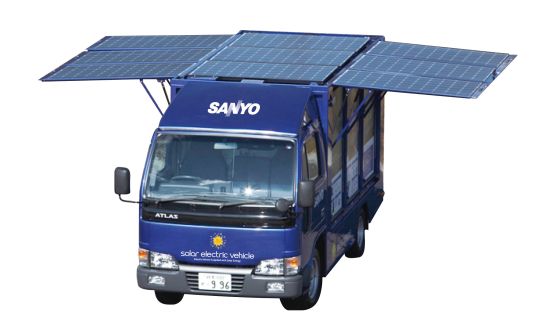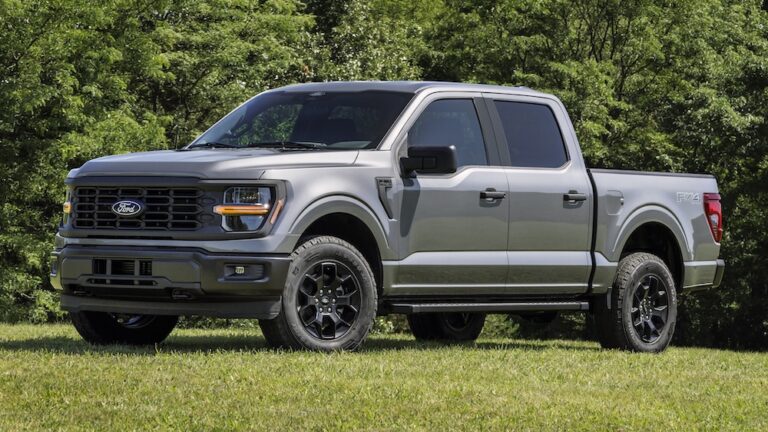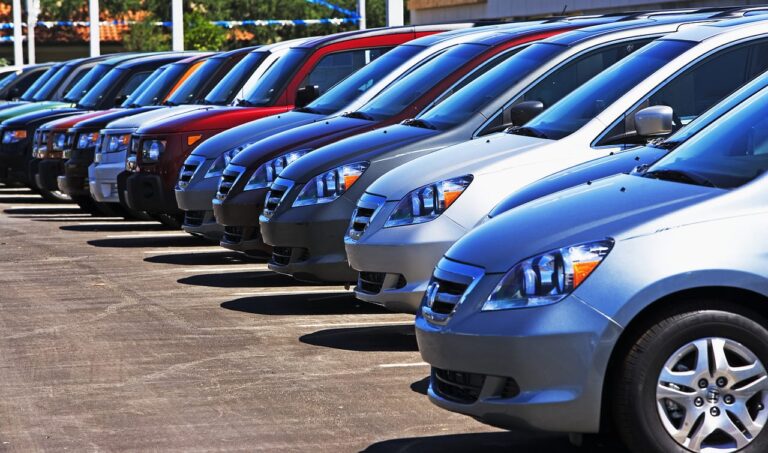Eco Trucks For Sale: Navigating the Green Revolution in Commercial Vehicles
Eco Trucks For Sale: Navigating the Green Revolution in Commercial Vehicles cars.truckstrend.com
The landscape of commercial transportation is undergoing a transformative shift, driven by a global imperative for sustainability and a desire for greater operational efficiency. At the heart of this evolution are "Eco Trucks," a broad category of vehicles designed to minimize environmental impact while delivering the robust performance and reliability businesses demand. For companies and individuals looking to update their fleets or make their first foray into sustainable transport, the market for eco trucks for sale presents a compelling opportunity. This comprehensive guide will delve into what defines an eco truck, the myriad benefits they offer, crucial considerations for purchase, and where to find these groundbreaking vehicles, empowering you to make an informed decision for a greener, more economical future.
What Defines an Eco Truck? Unpacking the Green Powertrains
Eco Trucks For Sale: Navigating the Green Revolution in Commercial Vehicles
An "Eco Truck" isn’t a single type of vehicle but rather an umbrella term encompassing various technologies aimed at reducing emissions, fuel consumption, and noise pollution compared to traditional internal combustion engine (ICE) trucks. The primary technologies you’ll encounter when exploring eco trucks for sale include:
- Battery Electric Vehicles (BEVs): These trucks are powered solely by electricity stored in large battery packs, driving an electric motor. They produce zero tailpipe emissions, offer quiet operation, and are increasingly capable of handling demanding routes. Examples include electric delivery vans, refuse trucks, and heavy-duty semi-trucks.
- Hybrid Electric Vehicles (HEVs/PHEVs): Hybrids combine a traditional gasoline or diesel engine with an electric motor and battery. HEVs cannot be plugged in and recharge through regenerative braking and the engine, while Plug-in Hybrid Electric Vehicles (PHEVs) can be charged externally and offer a greater electric-only range. They provide a bridge between conventional and fully electric, offering improved fuel economy and reduced emissions, especially in stop-and-go traffic.
- Compressed Natural Gas (CNG) & Liquefied Natural Gas (LNG) Trucks: These vehicles run on natural gas, which burns cleaner than diesel or gasoline, resulting in lower particulate matter, nitrogen oxide, and greenhouse gas emissions. CNG is stored under high pressure, while LNG is stored as a cryogenic liquid. They are particularly popular for regional haul and refuse collection where refueling infrastructure is available.
- Hydrogen Fuel Cell Electric Vehicles (FCEVs): FCEVs generate electricity on board through a chemical reaction between hydrogen and oxygen, producing only water vapor as a byproduct. They offer zero tailpipe emissions and can be refueled quickly, similar to gasoline trucks, making them ideal for long-haul applications where battery weight and charging times are prohibitive.
- Biofuel-Compatible Trucks: While often conventional diesel engines, these trucks are designed to run on biodiesel (B20, B100) or renewable diesel, fuels derived from renewable sources like vegetable oils or animal fats. While not a different powertrain, their ability to run on these fuels significantly reduces their carbon footprint.

Each of these technologies offers unique advantages and considerations, making the choice dependent on specific operational needs, available infrastructure, and budget.
The Growing Market for Eco Trucks: Why Now?
The surge in demand for eco trucks is not coincidental; it’s a convergence of several powerful forces:
- Stringent Emission Regulations: Governments worldwide are implementing stricter emission standards (e.g., Euro 6, CARB, EPA) for commercial vehicles, pushing manufacturers and operators towards cleaner alternatives.
- Corporate Sustainability Goals: Businesses are increasingly setting ambitious environmental, social, and governance (ESG) targets, making sustainable fleet management a priority to enhance brand image and meet stakeholder expectations.
- Fuel Price Volatility and Savings: Traditional fuel costs can be unpredictable and constitute a significant portion of operating expenses. Eco trucks, particularly electric and natural gas vehicles, offer the potential for substantial long-term fuel savings.
- Technological Advancements: Battery technology, charging infrastructure, and electric motor efficiency have progressed rapidly, making eco trucks more viable, reliable, and capable than ever before.
- Public Perception and Noise Reduction: Eco trucks, especially BEVs, operate much quieter than diesel trucks, making them ideal for urban deliveries, night operations, and improving community relations.


This confluence of factors has created a robust and expanding market for eco trucks, making them a smart investment for forward-thinking businesses.
Benefits of Investing in an Eco Truck
Beyond simply being "green," eco trucks offer a compelling suite of advantages:
- Environmental Impact: The most obvious benefit is the reduction in harmful emissions. BEVs produce zero tailpipe emissions, improving air quality in urban areas. CNG/LNG and FCEVs significantly lower greenhouse gas and pollutant emissions compared to traditional diesel.
- Economic Advantages:
- Fuel Cost Savings: Electricity, natural gas, or hydrogen can be significantly cheaper per mile than diesel or gasoline, leading to substantial operational savings over the vehicle’s lifespan.
- Government Incentives: Many governments offer tax credits, rebates, grants, and subsidies for purchasing eco trucks and installing charging/refueling infrastructure.
- Lower Maintenance: Electric powertrains have fewer moving parts than internal combustion engines, potentially leading to lower maintenance costs and less downtime.
- Toll and Access Privileges: Some cities or regions offer preferential access or reduced tolls for zero-emission vehicles.
- Operational Benefits:
- Quieter Operation: Electric trucks are remarkably quiet, which is advantageous for urban deliveries, residential areas, and night-time operations, reducing noise complaints.
- Enhanced Brand Image: Operating an eco-friendly fleet signals a commitment to sustainability, enhancing your company’s public image and attracting environmentally conscious customers.
- Improved Driver Experience: Electric trucks often offer instant torque, smooth acceleration, and a quieter cabin, leading to a more comfortable and less fatiguing driving experience.
Key Considerations When Buying an Eco Truck
Purchasing an eco truck requires careful planning and evaluation. Here are critical factors to consider:
- Intended Use and Duty Cycle:
- Light-Duty (Vans, Pickups): Ideal for local deliveries, last-mile logistics, and service fleets. BEVs often excel here due to shorter routes and return-to-base charging.
- Medium-Duty (Box Trucks, Refuse): Suitable for regional distribution, utility services, and waste management. BEVs and CNG trucks are strong contenders.
- Heavy-Duty (Tractors, Dump Trucks): For long-haul freight, construction, or heavy hauling. FCEVs, long-range BEVs, and LNG trucks are emerging options.
- Analyze your daily mileage, typical loads, and routes to determine the most suitable powertrain type and range.
- Range and Charging/Refueling Infrastructure:
- Electric: Assess the required daily range and the availability of charging infrastructure (depot charging, public fast chargers). Installation of charging stations can be a significant upfront cost.
- CNG/LNG/Hydrogen: Verify the proximity and reliability of natural gas or hydrogen fueling stations along your routes.
- Payload and Towing Capacity: Ensure the eco truck meets your specific requirements. Batteries add weight, which can sometimes impact payload, though manufacturers are actively mitigating this.
- Upfront Cost vs. Total Cost of Ownership (TCO): Eco trucks often have a higher initial purchase price. However, factor in fuel savings, lower maintenance, incentives, and potential resale value to calculate the true TCO over the vehicle’s lifespan. Often, the TCO for eco trucks is lower than their diesel counterparts.
- Maintenance and Parts Availability: Research the manufacturer’s service network and the availability of specialized technicians and parts for the chosen eco-friendly technology.
- Government Incentives and Rebates: Investigate federal, state, and local incentives available for eco truck purchases, charging infrastructure, or alternative fuel use. These can significantly offset the initial cost.
- Resale Value: While the market is still maturing, the demand for used eco trucks is expected to grow, potentially leading to strong resale values for well-maintained vehicles.
Where to Find Eco Trucks For Sale
The market for eco trucks is expanding rapidly, offering several avenues for potential buyers:
- Manufacturer Dealerships: Most major truck manufacturers (e.g., Volvo, Daimler Trucks, Freightliner, Kenworth, Peterbilt, Ford, GM, Rivian) now offer electric or alternative fuel models. Specialized dealerships focusing solely on electric or alternative fuel vehicles are also emerging.
- Online Marketplaces:
- Dedicated Eco-Vehicle Platforms: Websites specializing in electric or alternative fuel commercial vehicles.
- General Commercial Vehicle Sites: Major platforms like TruckPaper, CommercialTruckTrader, and Ritchie Bros. often list eco truck options.
- Used Vehicle Marketplaces: As the fleet of eco trucks grows, more used models will become available on sites like CarGurus, Autotrader, and dealer websites.
- Fleet Leasing Companies: Many leasing companies offer eco trucks as part of their fleet solutions, often bundling maintenance and infrastructure, which can be an excellent option for managing upfront costs and risks.
- Auctions: Public and private auctions, particularly those handling fleet disposals, can sometimes yield good deals on used eco trucks.
- Direct from Manufacturers: For larger fleet orders, some manufacturers offer direct sales programs or custom build options.
Tips for a Successful Eco Truck Purchase
- Research Thoroughly: Understand the different technologies, their pros and cons, and how they align with your operational needs.
- Conduct a Comprehensive TCO Analysis: Don’t just look at the sticker price. Factor in all potential savings and costs over the vehicle’s lifetime.
- Pilot Program (for Fleets): If you’re considering a large fleet transition, start with a small pilot program to test the technology’s viability in your specific operations before a full rollout.
- Test Drive: Experience the vehicle firsthand. Pay attention to performance, comfort, and any unique operational aspects.
- Inspect Vehicle History (for Used): Obtain a detailed vehicle history report, especially for used eco trucks, to check for accidents, maintenance records, and battery health.
- Understand Warranty: Familiarize yourself with the warranty terms, especially for critical components like batteries, fuel cells, or specialized powertrain parts.
- Factor in Infrastructure Costs: For BEVs, calculate the cost of installing charging infrastructure at your depot or home base. For CNG/LNG/Hydrogen, confirm the availability and cost of fueling.
- Negotiate: Don’t be afraid to negotiate the price, especially considering incentives and potential bundled services.
- Consult Experts: Talk to fleet managers who have already adopted eco trucks, or consult with energy consultants specializing in commercial vehicle electrification.
Challenges and Solutions
While the benefits are clear, transitioning to eco trucks can present challenges:
- High Upfront Cost:
- Solution: Leverage government incentives, grants, and financing options. Focus on TCO rather than just upfront price. Consider leasing.
- Range Anxiety / Infrastructure Availability:
- Solution: Carefully plan routes and duty cycles to match vehicle range. Invest in depot charging/fueling. Utilize public charging networks where available. For long-haul, FCEVs offer quicker refueling.
- Maintenance Specialization:
- Solution: Partner with dealers who have certified technicians for eco trucks. Ensure your in-house maintenance staff receives proper training.
- Limited Used Market (Currently):
- Solution: The market is growing. Patience is key. Consider certified pre-owned programs from manufacturers or reputable dealers.
Sample Price Table: Estimated Eco Truck Ranges
It’s important to note that prices for eco trucks vary significantly based on manufacturer, model, battery size/fuel tank capacity, features, new vs. used condition, and regional incentives. The table below provides estimated new vehicle price ranges to give you a general idea.
| Eco Truck Type (Category) | Powertrain Type | Estimated New Price Range (USD) | Key Considerations |
|---|---|---|---|
| Light-Duty Van/Pickup | Battery Electric | $40,000 – $100,000+ | Ideal for last-mile, local deliveries. Range varies significantly. Charging infrastructure crucial. |
| Medium-Duty Box Truck | Battery Electric | $150,000 – $350,000+ | Good for regional distribution, utility. Higher payload. Requires more robust charging. |
| Medium-Duty Refuse Truck | Battery Electric | $400,000 – $650,000+ | Specialized chassis, high power demand. Significant TCO savings over diesel in urban cycles. |
| Medium-Duty CNG Truck | CNG (Natural Gas) | $120,000 – $250,000+ | Lower fuel cost than diesel, cleaner emissions. Requires CNG fueling infrastructure. |
| Heavy-Duty Semi-Truck | Battery Electric | $300,000 – $600,000+ | Emerging market. Focus on regional haul initially. Requires significant charging capacity. |
| Heavy-Duty Semi-Truck | Hydrogen Fuel Cell | $500,000 – $1,000,000+ | Long-haul potential, quick refueling. Hydrogen infrastructure is still nascent. |
| Hybrid Commercial Van | Hybrid Electric | $50,000 – $80,000+ | Improved fuel economy in city driving. No plug-in required for HEV. |
| PHEV Commercial Van | Plug-in Hybrid | $60,000 – $90,000+ | Offers limited electric-only range. Good for mixed driving conditions. |
Note: These are estimated ranges for new vehicles. Used eco trucks will typically be less expensive, depending on age, mileage, and condition. Prices do not include potential incentives or charging/fueling infrastructure costs.
Frequently Asked Questions (FAQ) About Eco Trucks For Sale
Q1: Are eco trucks more expensive to buy than traditional diesel trucks?
A1: Often, yes, the initial purchase price of a new eco truck (especially BEVs and FCEVs) can be higher than a comparable diesel truck. However, government incentives, lower fuel costs, reduced maintenance, and potential operational benefits often lead to a lower Total Cost of Ownership (TCO) over the vehicle’s lifespan.
Q2: What is the typical range of an electric truck?
A2: The range varies significantly by vehicle type and battery size. Light-duty electric vans can offer 100-200 miles. Medium-duty electric trucks might achieve 150-250 miles. Heavy-duty electric semi-trucks are currently designed for regional hauls of 200-300+ miles, with longer-range models and fuel cell electric trucks pushing beyond 500 miles.
Q3: How long do electric truck batteries last, and are they expensive to replace?
A3: Electric truck batteries are designed for durability, often lasting 8-15 years or more, similar to the vehicle’s operational life. Many come with long warranties (e.g., 8 years/100,000 miles or more). While replacement costs can be high, significant degradation within the warranty period is rare, and battery technology is constantly improving in terms of longevity and cost.
Q4: Can I charge an electric truck at my business location?
A4: Yes, businesses often install charging infrastructure at their depots for overnight or opportunity charging. This can range from Level 2 AC chargers (slower) to DC Fast Chargers (much faster), depending on fleet size and operational needs. Planning and installation costs for charging infrastructure should be factored into the budget.
Q5: Are there tax credits or incentives for buying eco trucks?
A5: Absolutely. Many countries, states, and even local municipalities offer various incentives, including tax credits, rebates, grants, and preferential access programs, to encourage the adoption of eco trucks and supporting infrastructure. It’s crucial to research the specific incentives available in your region.
Q6: What kind of maintenance do eco trucks require compared to diesel trucks?
A6: Electric trucks generally require less maintenance because they have fewer moving parts (no engine oil changes, spark plugs, fuel filters, etc.). Maintenance typically focuses on tires, brakes (which last longer due to regenerative braking), suspension, and battery health checks. CNG/LNG trucks have different engine components but still require fluid changes and filter replacements.
Concluding Summary
The market for "Eco Trucks For Sale" represents more than just a trend; it’s a fundamental shift towards a more sustainable and economically efficient future for commercial transportation. From zero-emission electric vehicles to cleaner-burning natural gas and hydrogen fuel cell trucks, the options are growing, offering diverse solutions for various operational needs. While the initial investment might seem higher, the long-term benefits in terms of fuel savings, reduced maintenance, environmental compliance, and enhanced brand image often translate into a compelling total cost of ownership. By carefully evaluating your requirements, leveraging available incentives, and understanding the evolving landscape of green technologies, you can confidently navigate the eco truck market and drive your business towards a greener, more prosperous tomorrow.





